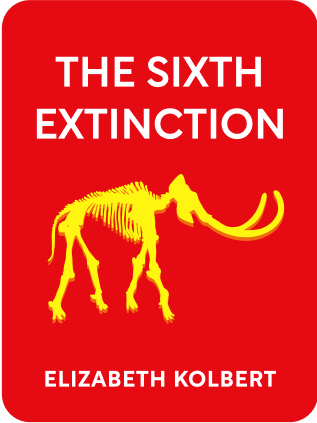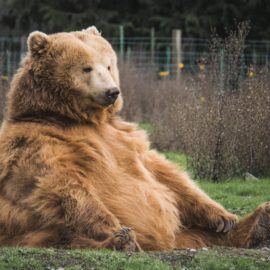

This article is an excerpt from the Shortform book guide to "The Sixth Extinction" by Elizabeth Kolbert. Shortform has the world's best summaries and analyses of books you should be reading.
Like this article? Sign up for a free trial here .
Looking for The Sixth Extinction quotes by Elizabeth Kolbert? What are some of the key messages from the book?
The Sixth Extinction is a non-fiction book written by journalist Elizabeth Kolbert where she explores the history of extinction events. The following The Sixth Extinction quotes highlight some of the author’s key messages about the causes of mass species extinctions.
Keep reading for The Sixth Extinction quotes by Elizabeth Kolbert and what they mean.
The Sixth Extinction Quotes by Elizabeth Kolbert
“The current extinction has its own novel cause: not an asteroid or a massive volcanic eruption but “one weedy species.”
According to Kolbert, the sixth extinction is different from the preceding species extinction events in that it is being caused not by a natural catastrophe, but by the activity of one “one weedy species”, that is us—humans. Among the first signs that our actions are leading to species extinction was the disappearance of amphibians beginning in the 1980s. Researchers in Panama first noticed that an iconic local species, the Golden Frog, was dying. Then they realized frogs were disappearing all over the globe.
Besides amphibians, animals are in trouble everywhere. Among those suffering steep declines are reef-building corals, sharks, rays, fresh-water mollusks, reptiles, mammals, and birds. While different animals are disappearing for seemingly different immediate reasons, in every case you can ultimately trace the cause to humans.
“The history of life thus consists of ‘long periods of boredom interrupted occasionally by panic.”
This quote is a metaphor for the current paradigm of extinction science which conceives of species extinction as the result of both gradual extinction due to evolution and sudden extinction caused by a calamity.
“Ocean acidification is sometimes referred to as global warming’s “equally evil twin.”
In terms of destructive effects, ocean acidification has been called global warming’s “evil twin.” There are numerous reasons, which add up to a steep loss of marine biodiversity.
- Acidification affects the internal processes of marine organisms—for instance metabolism and enzyme activity.
- It changes the composition of microbial communities and thus the availability of key nutrients like iron and nitrogen.
- It changes the amount of light that passes through water.
- It stimulates toxic algae growth.
- It affects photosynthesis. Some species will benefit from higher CO2 levels, but others will be harmed.
“There is every reason to believe that if humans had not arrived on the scene, the Neanderthals would be there still, along with the wild horses and the woolly rhinos.
Since the original discovery, Neanderthal bones have been found all over Europe, where it’s believed they lived for at least a hundred thousand years. Then, about thirty thousand years ago, Neanderthals disappeared. Interestingly, this disappearance coincided with the human arrival in Europe. Archaeological evidence suggests that whenever they arrived in a region inhabited by Neanderthals, the latter disappeared. According to Kolbert, this is no coincidence, and that if it weren’t for humans, the Neanderthals would not have gone extinct.

———End of Preview———
Like what you just read? Read the rest of the world's best book summary and analysis of Elizabeth Kolbert's "The Sixth Extinction" at Shortform .
Here's what you'll find in our full The Sixth Extinction summary :
- How humans have set in motion a sixth mass extinction
- The 5 mass extinction events that occurred over the last 500 million years
- Why human ingenuity might be able to save the human species from extinction






